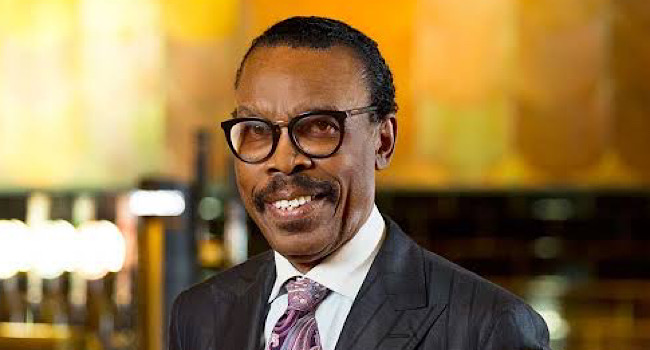Business
Buhari’s economic advisory team member counsels CBN on ways to reduce rising inflation

Bismarck Rewane, a member of President Muhammadu Buhari’s economic advisory team, has advised the Central Bank of Nigeria (CBN) on steps to take to temper the rising inflation, which hit its worst since April 2017.
Rewane said there’s need for a change in direction as things will continue to be worse before it gets better, adding, that the CBN, as the monetary policy authority, should ensure Nigeria floods the market with more oil than its pumping.
According to Rewane, increasing the level of oil output and raising the interest rate will temper the continuous hike in inflation rate, which now sits at 16.47% in January against the 15.7% in December.
He said the situation will get better along the way.
“Basically, what the Central Bank has to do, because they are the Monetary policy authority, is to ensure two things, one, increase the volume of oil put in the market, and two, begin to increase interest rate across the board.
So when you do that, you actually increase the marginal propensity to save, and also, you begin yo reduce the marginal propensity to consume and it begins to temper inflation.
READ ALSO: Higher inflation will weaken Nigerian economy further –CBN survey
“So those are the factors. There’s no silver bullet that is going to solve the inflation saga at this point.” Rewane said during an interview on Arise TV on Tuesday.
The Managing Director of Financial Derivatives Company Limited, said Nigeria’s economy will experience slow growth when the gross domestic product for first quarter is released by month end.
He explained that going forward, there will be some improve as the CBN has been putting in some work, by devaluing the naira gradually, amongst other things, but that won’t slow down in purchasing power.
“We are going to see some increase in interest rate, a slow down in consumer spending, also the central bank allowed the I&E window rate to drop to N409-N410; so essentially, the exchange rate has devalued to about 4% in the last two weeks, and the parallel market has appreciated all the way to N472.
“So in all fairness, the Central Bank has begin to do the right thing in terms of exchange rate flexibility, pushing interest rate in the right direction, and beginning to maintain some stability as far as price level is concerned.” Rewane said.
While addressing the issues that contributed to the rise in inflation, Rewane said there are several factors, “money supply growth, Federal Government borrowing from the Central Bank, the exchange rate, supply shocks and other disruption to the supply chain are going to have an impact.
“And then the planting citizen come in, seasonally, there will be shortages – these are expected.” Rewane opined.
Join the conversation
Support Ripples Nigeria, hold up solutions journalism
Balanced, fearless journalism driven by data comes at huge financial costs.
As a media platform, we hold leadership accountable and will not trade the right to press freedom and free speech for a piece of cake.
If you like what we do, and are ready to uphold solutions journalism, kindly donate to the Ripples Nigeria cause.
Your support would help to ensure that citizens and institutions continue to have free access to credible and reliable information for societal development.
























